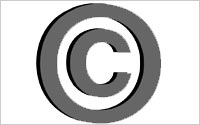 Google is asking a federal judge to reject
the Motion Picture Association of America's interpretation of the federal copyright statute in a case involving the digital locker service Hotfile.
Google is asking a federal judge to reject
the Motion Picture Association of America's interpretation of the federal copyright statute in a case involving the digital locker service Hotfile.
The MPAA's arguments "distort the meaning of
the statute," Google argues in a proposed friend-of-the-court brief. The search giant adds that adopting the MPAA's legal theories would "compromise the protections that Congress intended to give to
Internet businesses that provide innovative and socially beneficial services to the public."
Google says in its papers that it isn't taking a position on whether Hotfile or the MPAA should win
the case at this point. Instead, Google says it wishes to offer "a more complete perspective on the legal issues" surrounding copyright law, including whether companies like Hotfile are liable for
infringement by users.
The legal dispute between the MPAA and Hotfile began in February of 2011, when the studios sued the cyberlocker for copyright infringement. The MPAA is seeking to hold
Hotfile liable for users' infringement on the theory that the site's business model allegedly encourages people to upload pirated files.
Hotfile allows people to upload or download files for
free, but at restricted speeds. Hotfile also offers premium memberships without the speed limits at prices ranging from $9 a month to $55 a year. In addition, it operates an affiliate program that
compensates users who upload popular files, according to the court papers.
Hotfile denies that it encourages piracy, and also argues that it's entitled to the Digital Millennium Copyright
Act's safe harbor protections. Those provisions generally immunize sites from infringement liability based on users' uploads, as long as sites take down pirated material upon request.
But the
safe harbors have exceptions, including one for sites that know about infringement and fail to act. One of the key legal issues centers on that exception. The MPAA argues that Hotfile knew about infringement on its site in
general and didn't proactively prevent it. Hotfile counters
that it's entitled to the safe harbors unless the MPAA can show that Hotfile knew of and ignored specific instances of alleged infringement, as opposed to piracy in general.
Courts in other
copyright lawsuits, including ones against YouTube and Veoh, have adopted Hotfile's reasoning and ruled that online services are safe
harbors as long as they take down specific URLs that host infringing content, regardless of whether the services knew that their sites were being used.
Google says in its papers that it seeks
to weigh in on the Hotfile case in order to promote the view that the DMCA's safe harbors offer broad protection to online services." "Facebook, Twitter, and Wikipedia ... rely on the DMCA safe
harbors in their everyday operations. These services have become vital to democratic participation in this country and around the world," Google writes in its papers. "Without the protections afforded
by the safe harbors, those services might have been forced to fundamentally alter their operations or might never have launched in the first place."
The MPAA is opposing Google's attempt to
file friend-of-the-court papers in the Hotfile matter. "Google is hardly a dispassionate party on these issues: it itself is a frequent defendant in online copyright infringement cases where
Google’s own entitlement to invoke the DMCA safe harbors has been called into question," the MPAA writes.